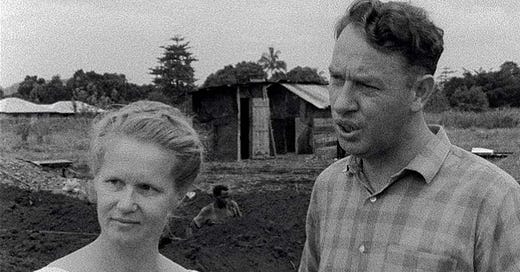‘Concerning Violence’ is a Stunning, Startling Film on African Decolonization
Written by Daniel Walber
Look through any list of the greatest nonfiction books of all time and you’ll find few that have been made into movies, especially those that aren’t biographies. Most of them don’t involve stories in a cinematically adaptable fashion, and not even documentaries could appropriately give them new expository life in a way that’s worthwhile. The texts are a…
Keep reading with a 7-day free trial
Subscribe to Nonfics to keep reading this post and get 7 days of free access to the full post archives.


